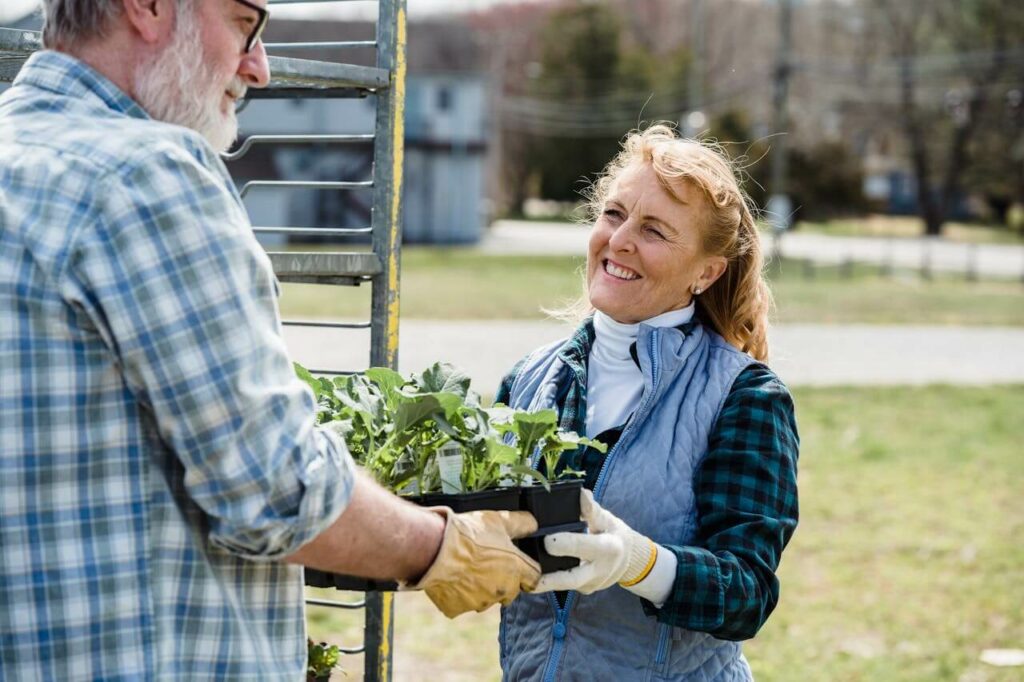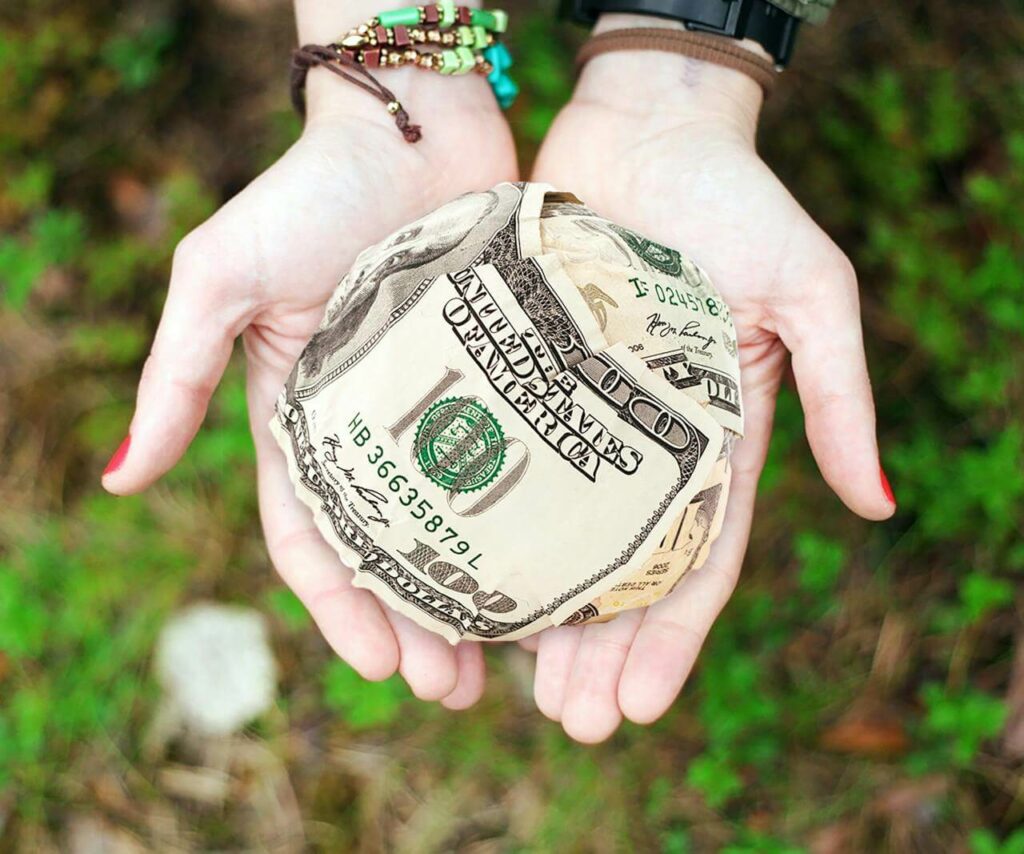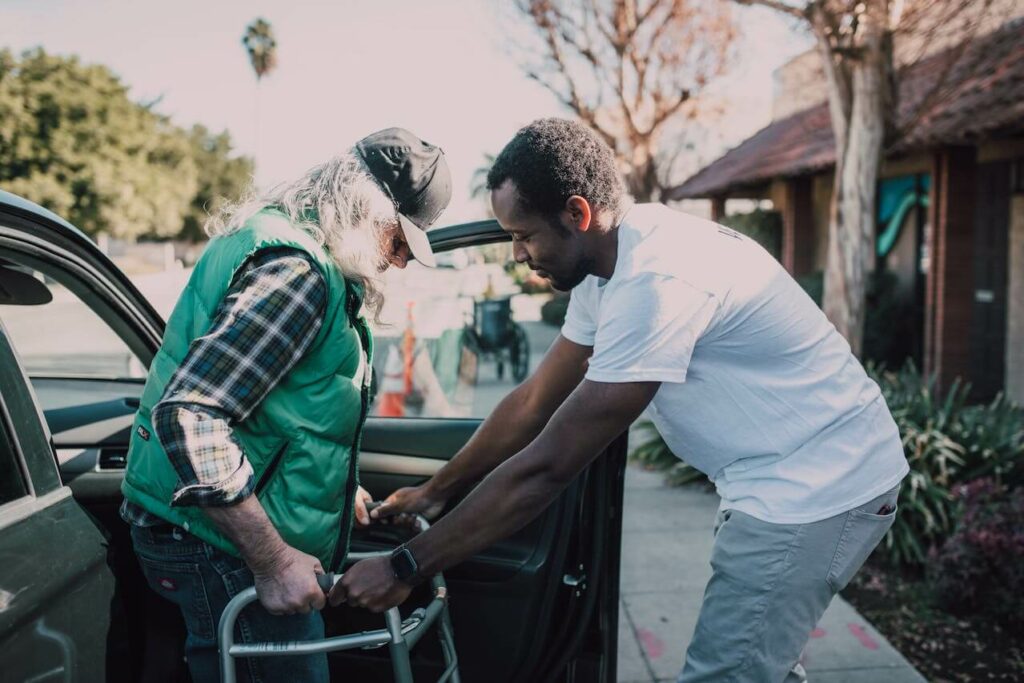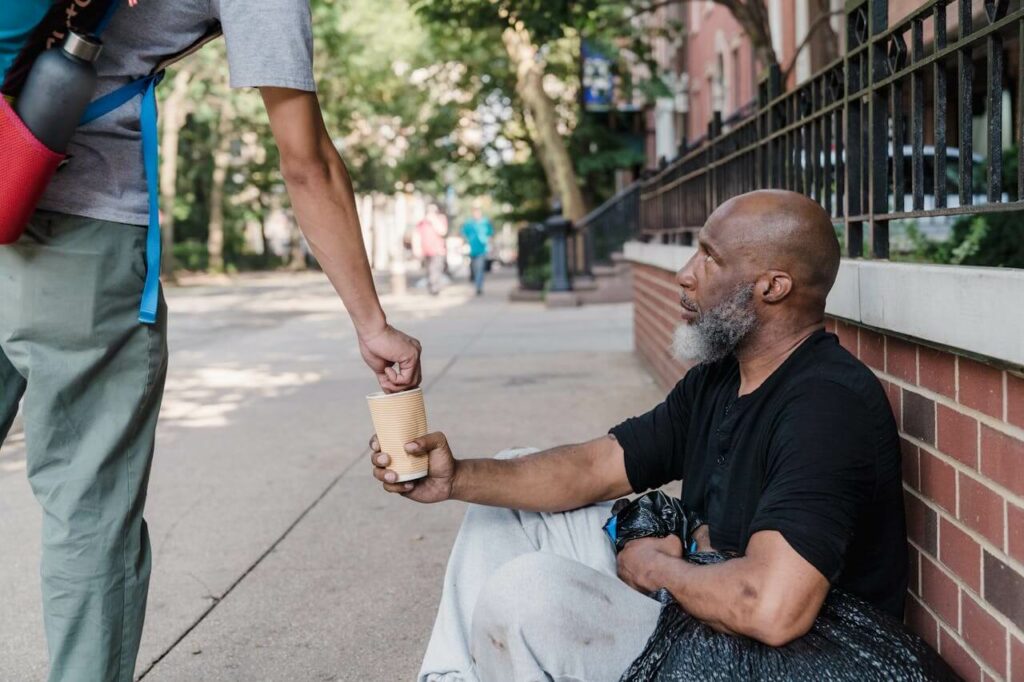Happiness from Helping Others: The Link Between Happiness and Generosity
It’s easy to believe that happiness lies in what we acquire for ourselves. However, research shows that happiness from helping others is one of the most sustainable ways to boost joy. Generosity doesn’t just impact the receiver; it significantly enriches the giver’s life. Acts of kindness, whether big or small, create positive energy and enhance our sense of purpose. This article explores how happiness and generosity are linked, why giving leads to increased joy, and how to derive happiness from helping others.

How Happiness and Generosity Are Linked
Giving often feels instinctual. From small gestures like holding the door open to larger acts of kindness like supporting a friend in need, these actions spark positive emotions. Happiness from helping others occurs because generosity is deeply connected to human well-being. When we perform kind acts, our brains release “feel-good” hormones, such as dopamine and serotonin, which foster a natural sense of joy.
Generosity also strengthens social bonds. When we give, we connect with others, enhancing our relationships and expanding our support networks. The benefits of generosity, therefore, extend far beyond the moment, creating lasting memories and positive feelings that stay with us. Studies show that people who engage in regular acts of kindness report a higher sense of life satisfaction and happiness.
The Benefits of Generosity on Mental Health
Generosity and mental health go hand-in-hand. Engaging in kind acts can alleviate stress, reduce depression, and improve overall well-being. The “helper’s high” is a phenomenon in which performing kind acts leads to a rush of positive emotions. When we give, our brains release endorphins, natural painkillers that also boost mood.
In addition, kindness lowers cortisol, the stress hormone. Studies show that regular acts of kindness can reduce cortisol levels, thereby decreasing stress and anxiety. This connection between generosity and mental health is a strong indicator of why helping others enhances our well-being.

Why Giving Is Good for Happiness: Research Insights
Researchers have extensively studied the relationship between happiness and generosity, revealing profound insights into why helping others enhances well-being. Two influential studies led by Elizabeth Dunn and Michael Norton, and Sonja Lyubomirsky and colleagues, provide compelling evidence that generosity leads to long-term happiness and satisfaction. These studies highlight that happiness from helping others isn’t just a fleeting feeling—it’s a sustained benefit that transcends personal spending, cultural boundaries, and economic limitations.
Happy Money: The Science of Happier Spending
One significant study, detailed in Dunn and Norton’s book, Happy Money: The Science of Happier Spending, explored how spending money on others boosts happiness more effectively than spending on oneself. Dunn and Norton designed an experiment in which participants were given a set amount of money, either $5 or $20, and were asked to spend it by the end of the day. Some were instructed to spend it on themselves, while others were told to use it to benefit someone else. Despite initial predictions that spending a larger amount or spending on oneself would lead to greater happiness, the results contradicted these expectations. Those who spent money on others consistently reported higher happiness levels, regardless of whether they had spent $5 or $20. This finding indicates that the act of giving itself—rather than the specific amount given—brings lasting joy and satisfaction. The benefits of generosity, as the study shows, are rooted in the meaningful connection created through acts of kindness. This proves that the value of giving often surpasses personal spending.

Lyubomirsky’s Insights
Sonja Lyubomirsky and her colleagues have also conducted extensive research on happiness and generosity. In one experiment, participants were instructed to perform multiple acts of kindness within a single day, a process they called the “kindness intervention.” This approach was designed to help individuals recognize the positive impact they can have on others, thereby enhancing their own well-being. Lyubomirsky’s research revealed that performing several acts of kindness within a single day produced significant boosts in happiness, even more so than spreading these acts out over a week. By grouping acts of kindness together, participants could more easily see and feel the impact of their actions, creating a profound sense of fulfillment and happiness. This method helped individuals recognize the difference they make in others’ lives, reinforcing the connection between happiness from helping others and a strengthened sense of purpose.
Dunn’s Research
Elizabeth Dunn’s research also extends to the universality of happiness from helping others across cultures. In a study conducted in Uganda and Canada, Dunn and her colleagues investigated whether spending money on others could increase happiness regardless of cultural or economic background. Participants from both countries were given money and instructed to either spend it on themselves or others. Remarkably, the results in Uganda mirrored those in North America: participants who spent money on others reported higher levels of happiness, whether they were in a high-income country or a lower-income community with limited resources. This cross-cultural generosity study highlights that the benefits of generosity transcend cultural and financial boundaries, suggesting that the happiness derived from giving is a fundamental aspect of human nature.
In her TED Talk, Elizabeth Dunn expands on these findings, explaining that generosity not only improves well-being but is also more accessible than we might think. According to Dunn, even small acts of giving, such as buying a friend a coffee or paying for a stranger’s meal, can create a noticeable increase in happiness. Dunn emphasizes that these small, thoughtful gestures often have a significant impact on life satisfaction because they foster social connection and a sense of purpose. By integrating acts of generosity into our daily lives, we can experience a continual boost in happiness, illustrating the enduring link between happiness and generosity.
Findings by Lyubomirsky and Layous
Furthermore, Lyubomirsky and Layous (2013) explored the psychological mechanisms behind happiness from helping others in their review paper How Simple Acts of Kindness Influence Happiness. Their research delves into how prosocial behaviors, such as helping friends, family, or even strangers, can foster long-term happiness. Lyubomirsky and Layous found that kindness increases well-being by enhancing social connections, creating a sense of belonging, and reinforcing purpose. They argue that kindness doesn’t just elevate our mood temporarily; it instills a lasting sense of fulfillment that contributes to an overall sense of life satisfaction. These findings underscore the universal and transformative effects of kindness, proving that generosity is a powerful, accessible path to happiness.
These scientific insights affirm that happiness from helping others is not only genuine but deeply rooted in human psychology. By understanding the benefits of generosity, we can cultivate happiness and create a meaningful impact on ourselves and those around us.

Acts of Kindness Examples: Simple Ways to Give
Here are some simple acts of kindness that anyone can do. These examples show that generosity doesn’t need to be grand; even small acts can lead to big joy:
- Write a Positive Note – A kind message can uplift someone’s day and foster a sense of connection.
- Donate Used Items – Giving items we no longer need helps others and makes us feel lighter and happier.
- Help a Neighbor – Offer to run errands, mow the lawn, or help with groceries.
- Volunteer Locally – Community service boosts our happiness and allows us to connect with others.
- Treat Someone to Coffee – A small gesture like buying coffee for a friend or colleague can create happiness for both people.
- Listen Actively – Being present when someone talks is a powerful act of kindness.
- Send a Thoughtful Gift – Sending flowers or a handwritten card can brighten someone’s day.
- Express Gratitude – Thanking people for their support creates a ripple effect of positivity.
These acts illustrate that generosity and happiness are closely related. By performing small, intentional acts, we derive happiness from helping others and contribute to our community’s well-being.

Additional Benefits of Helping Others: Expanding Happiness Beyond Ourselves
Helping others creates a ripple effect that extends beyond our immediate actions. Generosity inspires others to give, spreading happiness throughout our communities. When we see others give, we’re often motivated to join in, creating a positive feedback loop that reinforces kindness. By embracing the benefits of helping others, we not only improve our happiness but also strengthen the fabric of society.
One of the key benefits of generosity is the sense of purpose it creates. When we give, we’re reminded of our capacity to make a difference. This sense of purpose can be deeply fulfilling, giving us a reason to stay motivated and engaged in life. The happiness from helping others becomes a sustainable source of joy, especially when integrated into our daily routines.
Generosity as a Path to Sustainable Well-Being
Unlike material possessions, which provide only temporary happiness, the joy from giving lasts longer. This is because acts of kindness reinforce our sense of connection and empathy, qualities that are essential for sustainable well-being. The happiness from helping others has long-term benefits, allowing us to build resilience and increase our emotional health over time.
Many people find that, over time, acts of kindness become a source of personal growth. The more we give, the more aware we become of our impact on others. This awareness not only strengthens our self-esteem but also deepens our sense of happiness and generosity. In this way, generosity becomes a powerful habit, one that contributes to lasting well-being.

Building a Generous Life: Practical Tips for Everyday Giving
Incorporating generosity into daily life can be simple and rewarding. Here are some practical ways to build a generous lifestyle that aligns with your values:
- Set a Goal for Acts of Kindness – Aim to perform at least one act of kindness daily.
- Practice Mindful Giving – Be intentional about the ways you give, focusing on the impact rather than the act itself.
- Join a Volunteer Group – Being part of a group can motivate us to give regularly.
- Celebrate Small Acts – Recognize that even small gestures count. Celebrate each act of kindness.
- Reflect on Positive Experiences – Take time to think about the joy generosity brings to others and yourself.
Building these practices into your life helps reinforce the connection between happiness and generosity. When we focus on giving, we create a mindset that seeks joy in helping others, enhancing our well-being.
For Those Looking to Cultivate Happiness and Generosity: At 4HappyU, we believe in empowering people to build happiness through positive actions. Our coaching programs focus on enhancing well-being and helping individuals unlock the benefits of kindness and empathy. Whether you’re looking to deepen your life satisfaction or develop a healthier mindset, our coaching services can guide you in integrating generosity and joy into your daily life. Learn more at https://4happyu.com/.

Final Thoughts About Happiness and Generosity
Generosity offers a pathway to lasting joy, one that transcends material possessions and self-centered pursuits. The research is clear: happiness from helping others is real, deeply fulfilling, and universally accessible. When we give—whether through acts of kindness, a small gesture, or financial support—we foster meaningful connections, reduce stress, and boost our sense of purpose. The impact of generosity on happiness goes beyond a quick emotional lift; it creates a sustainable, life-enriching foundation for well-being.
As we weave generosity into our lives, we open ourselves to a world of positive energy. This ripple effect extends beyond ourselves, inspiring those around us to embrace kindness. By making small, intentional acts of giving a part of our daily routines, we cultivate a generous mindset that reinforces happiness, builds resilience, and strengthens our communities.
If you’re looking to create a more fulfilling life, consider incorporating more acts of kindness and generosity into your day. Try a simple act of generosity today—whether it’s calling an elderly relative or a friend who would appreciate an encouraging word, holding the door open for someone, helping your neighbor with their grocery bags, or donating a small amount of your time or money to someone in need. Each small gesture of kindness builds a sense of connection and joy, enriching both your life and the lives of those around you.
Resources
The information in this article is grounded in scientific research. If you’re interested in specific studies, feel free to reach out to us.
For daily doses of joy, positivity, inspiration, and motivation, be sure to follow us on Instagram at 4HappyU.
Za naše bralce v Sloveniji
Če vas zanima več o psihoterapiji in iskanju trajne sreče, preberite naslednje članke: Psihoterapija Obala, 5 ključev do trajne sreče in notranjega miru, Najboljši psihoterapevti v Sloveniji: Kako se hitro spopasti s stresom, Psiholog v Kopru: Kako odpraviti težave s psihoterapijo in RTT terapijo, in Psihoterapija Online: Prednosti in učinkovitost terapije na daljavo.


